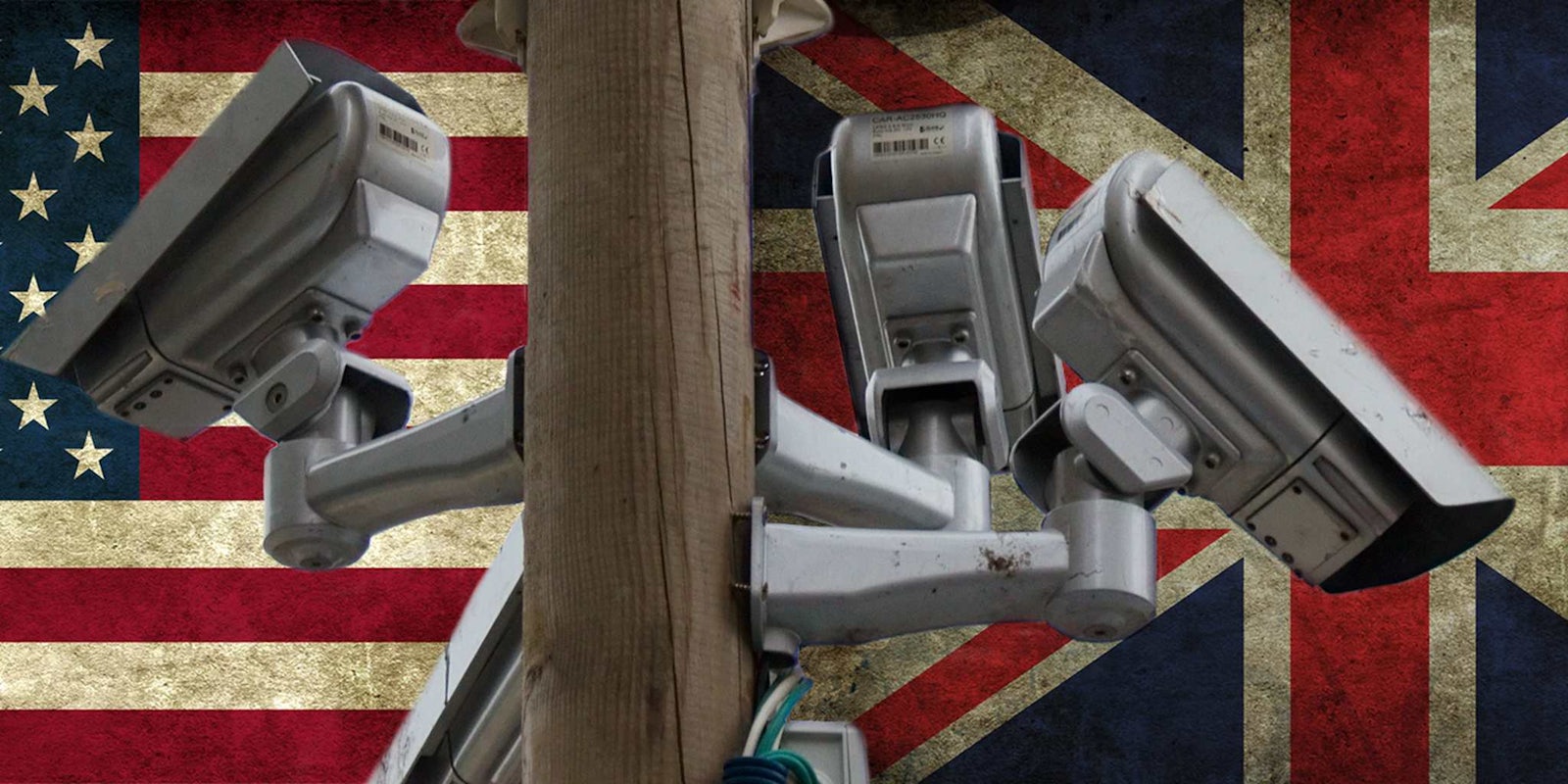A preliminary draft by the European Parliament’s Civil Liberties committee has found that programs run by the U.S. and U.K.’s elite spy agencies, the National Security Agency and the Government Communications Headquarters, may be illegal.
It’s possibly the biggest legal blow yet for the NSA and GCHQ, who saw a number of their hidden programs thrust into the public eye after former NSA contractor Edward Snowden leaked a massive cache of agency documents to the press. In a one-sided vote, the EU decided Thursday to invite Snowden to testify on those programs via video stream.
The committee’s draft, headed by British MEP Claude Moraes, was obtained by the Guardian, and names several of the most controversial programs Snowden revealed as infringing on Europeans’ privacy rights. Those include PRISM, which allows the NSA to easily tap into users’ stored communications held by American companies like Google, Yahoo, and Facebook, and TEMPORA, which allows the GCHQ to easily track a target’s entire Web traffic.
The draft’s preliminary findings are that the program violates EU law and isn’t consistent with agency claims that such programs are necessary to fight terrorism. It says the “legality, necessity and proportionality of the programmes” are all dubious.
President Obama, in attempting to quell domestic criticism of the NSA, said in December that Americans were afforded a degree of privacy protection from the agency, but that “outside of our borders, the NSA’s more aggressive” and “it’s not constrained by laws.”
The NSA and GCHQ share a special relationship, sharing much of their intelligence with each other and equivalent agencies in Australia, Canada, and New Zealand, part of the “Five Eyes” alliance. But adding to the complication is the fact that spy agencies in many EU nations—including some of the NSA’s biggest critics, like Germany and Sweden—also have relationships with the NSA.
The report does, according to the Guardian, insist that France, Germany, the Netherlands, Sweden, and the U.K. revise their national laws to harmonize with EU privacy protections. It also makes that demand of the U.S., though it’s far from clear how that could be accomplished.
The draft isn’t yet binding, and Moraes has announced he will accept amendments until Jan. 22.
Photo by zigazou76/Flickr (Remix by Fernando Alfonso III)


